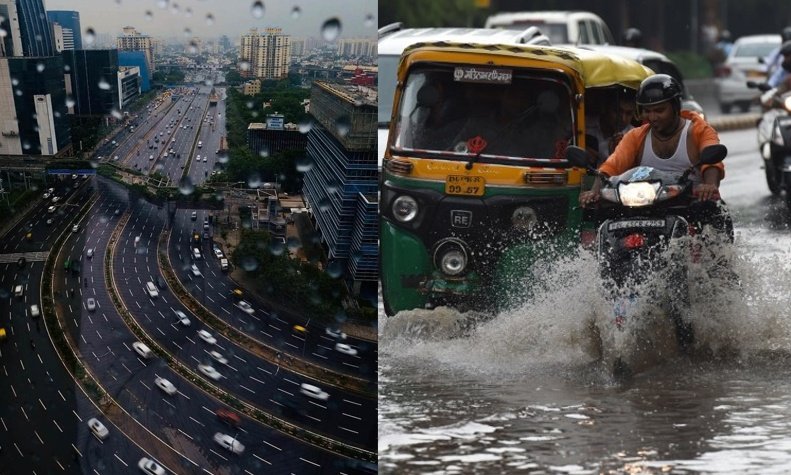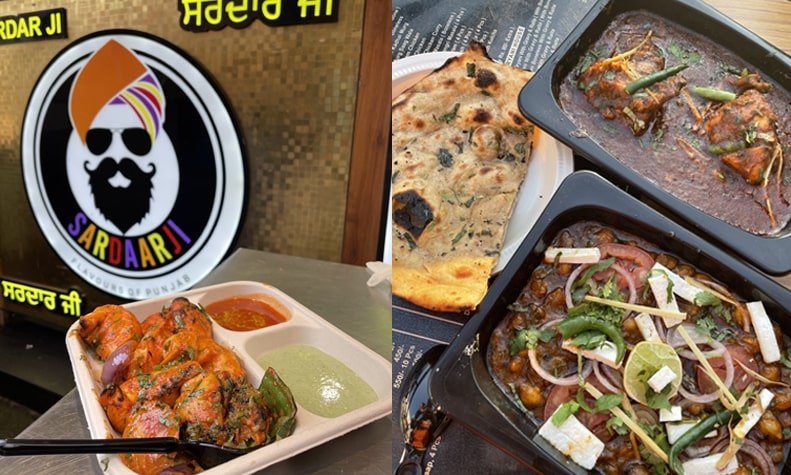The sound of raindrops, cozy evenings, and warm snacks can bring a lot of comfort during the monsoon season. However, for females dealing with health concerns like PCOS (Polycystic Ovary Syndrome), this season also demands some extra attention, especially when it comes to what you eat.
Did you know that the humid weather, frequent cravings, and weaker immunity during monsoon can make PCOS symptoms worse? But don’t worry, by making mindful dietary changes, you can manage your symptoms better and support your overall health. Monsoon and PCOS: What You Need to Know
Dr. Sadhna Sharma, one of the leading gynaecologists in Gurgaon at Miracles Apollo Cradle, shares essential dietary guidance for women managing PCOS—particularly during the monsoon season.
Polycystic Ovary Syndrome (PCOS) is a common hormonal disorder that affects women of reproductive age, often leading to symptoms such as irregular menstrual cycles, weight gain, acne, and fertility issues. In fact, studies suggest that nearly one in five women in India may be living with this condition.
While PCOS requires year-round management, the monsoon season introduces unique dietary and health challenges that can worsen symptoms. Dr. Sharma highlights five key foods to avoid during this time to help maintain hormonal balance and overall well-being.According to Dr. Sadhna, “The digestive system becomes weaker during the monsoon, and the risk of infections and inflammation increases. For women with PCOS, it is essential to follow a clean, balanced diet that supports hormonal stability and digestive health.”
That is why eating fresh, home-cooked, nutrient-rich meals and avoiding food items that spike blood sugar or increase inflammation becomes extremely important during this season.
5 Foods to Avoid in Monsoon If You Have PCOS
- Fried and Greasy Foods
We all crave crispy pakoras and samosas when it rains. But unfortunately, these fried snacks are high in unhealthy fats and can seriously disrupt your hormonal balance if you have PCOS.
Why you should avoid them:
- Can trigger inflammation in the body
- May worsen acne and skin issues
- Slows down digestion
- Contributes to unwanted weight gain
Healthier alternative:
Opt for roasted chana, air-fried snacks, or lightly sauteed vegetables. These options satisfy your craving for something crunchy without loading your body with excess fat.
- Sugary Treats and Desserts
Monsoon often tempts us with sweets like jalebis, halwa, and mithai. But sugary foods can trigger PCOS symptoms.
Why are they harmful?
- Causes sudden insulin spikes
- Leads to sugar crashes and mood swings
- Can lead to insulin resistance, making it harder to manage blood sugar levels and increasing the chances of developing type 2 diabetes
- May worsen the hormonal imbalance
Healthier alternative:
Try natural desserts like baked apples with cinnamon, frozen banana ice cream, or dates and dry fruits in moderation. These options are sweet but come with nutrients and fiber.
- Refined Flour (Maida) and Processed Foods
Items like white bread, noodles, and biscuits may seem convenient, but they are made from refined flour, which is low in nutrients and high in simple carbs.
Why you should avoid them:
- Lack of fiber slows digestion
- Can lead to fat storage in the body
- Negatively affects hormone levels
- Contributes to fatigue and mood swings
Healthier alternative:
Choose whole grains like oats, brown rice, multigrain rotis, and millets. They provide longer-lasting energy and help maintain stable blood sugar levels.
- Heavy Dairy Products
Milk, paneer, and curd are usually considered healthy. However, during the monsoon, they can sometimes cause problems for women with PCOS.
Why they may not be the best choice:
- May cause bloating and digestive discomfort
- Associated with acne flare-ups
- Can increase mucus production and inflammation
Healthier alternative:
You can try plant-based options such as almond milk, coconut milk, and lactose-free curd. These are easier on the stomach and still provide essential nutrients.
- Street Food and Raw Salads from Outside
Roadside fruit chaat, raw salads, and juices may look tempting, but these foods are often prepared in unhygienic conditions.
Why be cautious:
- Higher risk of stomach infections due to contaminated water
- It can affect your digestion and nutrient absorption
- Weakens the immune system, which is already more vulnerable during the monsoon
Healthier alternative:
- Eat freshly prepared home-cooked food.
- Wash all fruits and vegetables properly before use and steam them lightly to ensure easy digestion.
Additional Monsoon Wellness Tips for Women with PCOS
- Drink warm or lukewarm water throughout the day to support digestion.
- Avoid chilled beverages, which can disturb metabolism and digestion.
- Practice light indoor exercises or yoga to stay active and reduce stress.
- Eat small meals every few hours instead of having three large meals.
- Track your menstrual cycle and PCOS symptoms using a journal or app.
- Don’t skip medications or routine check-ups with your gynae in gurgaon.
Conclusion:
Managing PCOS during the monsoon doesn’t mean giving up on the joys of the rain. Sometimes, a few smart food choices—and knowing what to avoid—can make all the difference.
By staying away from fried snacks, sugary desserts, refined carbs, heavy dairy, and street food, you give your body a chance to heal, balance hormones, and feel energetic.
Small dietary changes can lead to big improvements in how you feel. So, take control of your health and stay one step ahead. If you’re dealing with PCOS and need guidance that fits your unique needs, it’s a good idea to speak with a gynaecologist near you. Dr. Sadhna Sharma at Miracles Apollo Cradle Hospital, Gurgaon, can help you with a personalized diet and treatment plan to stay symptom-free this monsoon.













